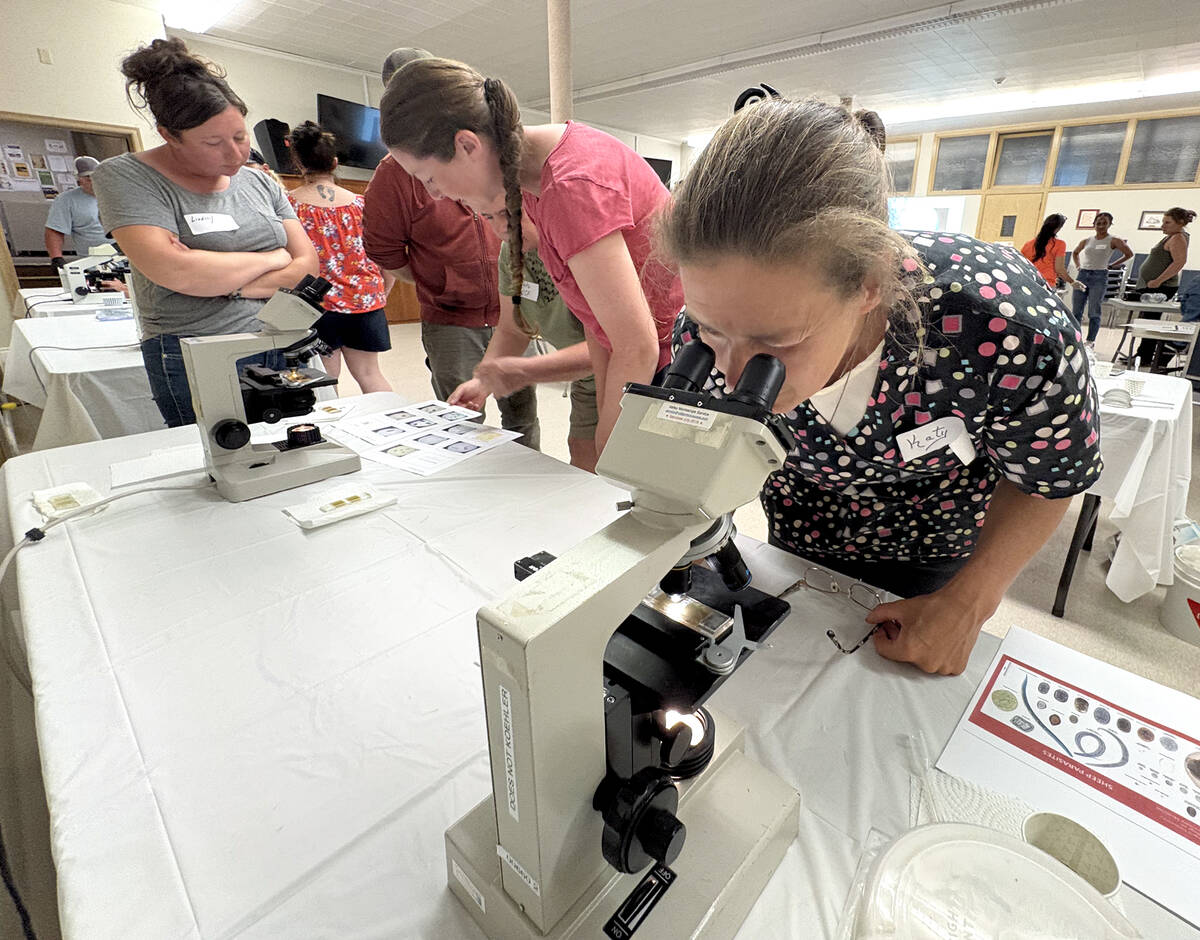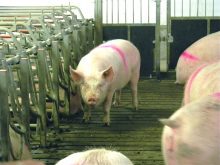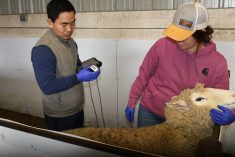“We are really excited with the broad cross-section of markets in our project.”
– DONNA HENUSET
The Canadian Cattle Identification Agency (CCIA) has launched its Auction Market Applied Research Project to evaluate multiple Radio Frequency Identification (RFID) systems at auction markets across Canada with support from the federal government’s Growing Forward program. The work will detail the cost and benefit to industry and government for implementation of RFID systems that enable rapid traceability for the auction market industry.
Read Also

Smart deworming for sheep starts with individual fecal egg counts
Fecal egg count tests are one step to managing dewormer resistance and managing sheep parasites on Canadian sheep farms to maintain flock health.
“In partnership with the Livestock Markets Association of Canada (LMAC), we are conducting research at 11 auction markets across four provinces and will be able to make some firm recommendations on the feasibility of traceability at the auction market level,” says Donna Henuset, project manager for the CCIA. “We are really excited with the broad cross-section of markets in our project. This has enabled us to implement systems from multiple vendors, using numerous configurations, and install the systems in locations unique to each market that will support and validate the data collected.”
This research project will install, operate and test multiple, commercially available RFID reader technologies in eight auction markets across Canada and collect data from three markets with pre-existing systems.
Four Manitoba auction marts
are participating in the project: Ste. Rose, Gladstone, Winnipeg and Killarney.
Traceability in the Canadian marketplace requires the capture and transfer of RFID tag data from cattle to the CCIA’s database, the Canadian Livestock Tracking System (CLTS), through the use of electronic readers at each movement site. The technology and processes must meet the needs of auction markets by not impeding commerce or causing additional stress for the livestock.
Phase 1 of the research will evaluate the ability of existing technology to collect and disseminate RFID tag data to the CLTS at a high level of accuracy and reliability. Further, the research will evaluate the impact on commerce both in speed and cost of implementation to support full traceability.
“The research will be documented in an initial report completed in January 2010. These findings will tell us the accuracy of the current technology and provide a basis for moving forward on Phase 2 of the traceability initiatives at an auction market level,” adds Rick Wright, CCIA vice-chair and steering committee chair for the Auction Market Research Project.
The federal government and industry have suggested the end of 2011 for the Canadian cattle industry to have implemented full traceability. Key elements of a traceability system are animal identification, premise identification, and movement tracking. It is estimated that there are more than 250 auction marts and buying stations that will require the installation of tracking systems to achieve full traceability.
The national Auction Market Applied Research Project will enable a proper assessment of the costs and benefits of reading the tags and collecting and disseminating the data. The data collected from the test sites will be used to provide ongoing evaluation and a final detailed report that makes recommendations on the viability and costs associated with implementation of a nationwide traceability system at the auction market level. The report will provide government with an approximate cost to equip the livestock market industry with RFID systems to support traceability.


















